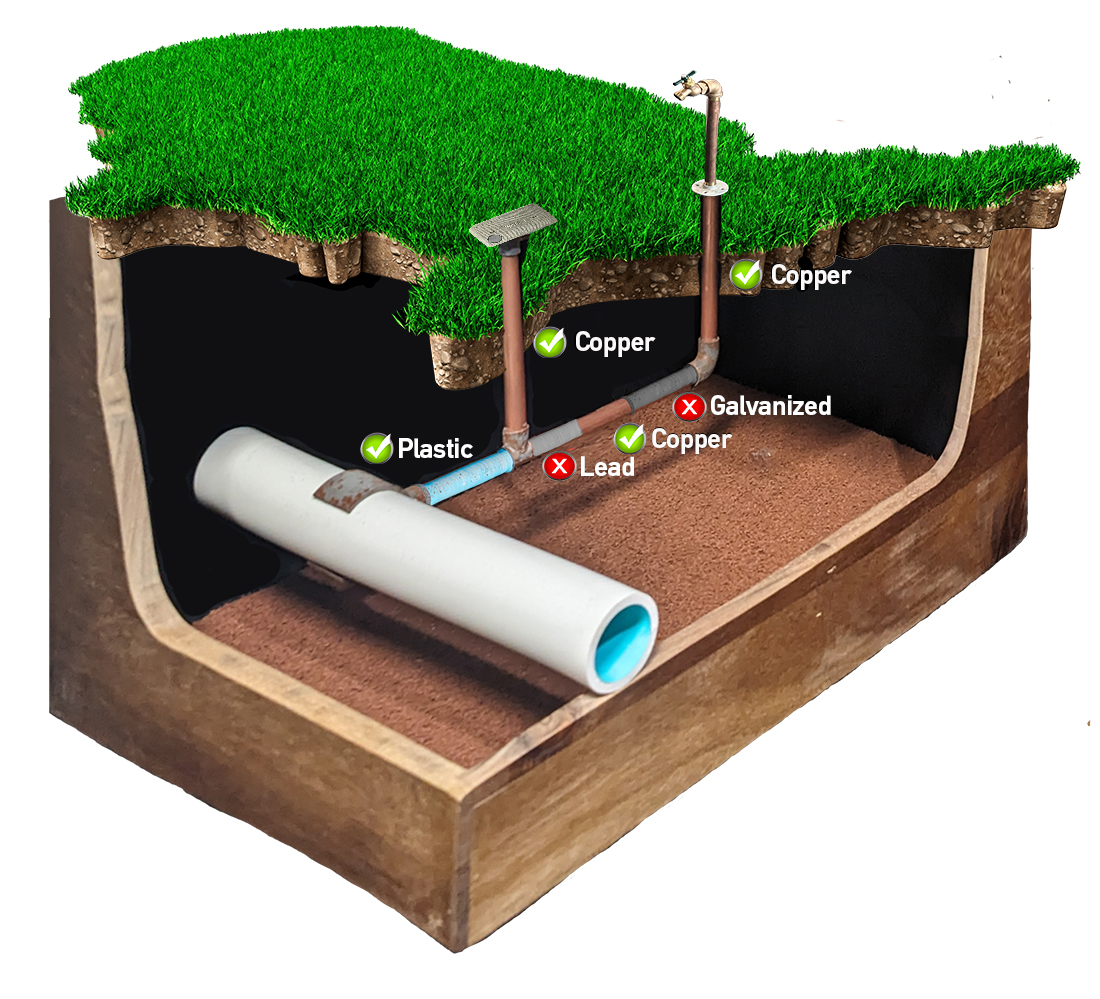Electro Scan Inc. Conducts Straw Poll on U.S. Water Utilities Lead Inventory Progress
SACRAMENTO, Calif., Nov. 19, 2024 (GLOBE NEWSWIRE) -- Electro Scan Inc., a leader in machine-intelligent pipe testing technology that locates lead in drinking water pipelines, has completed a straw poll of U.S. water utilities about progress in completing an EPA mandated inventory of water lines. Notification letters were required to be sent to nearly 145 million U.S. households by this past weekend.

U.S. water utilities need to inventory their buried water service lines, but according to a recent straw poll many have limited their inspection to above ground meter boxes and hose bibs without including pipe materials, as required by the EPA.
Results of Electro Scan's straw poll found a majority of water utility respondents either (a) have not started their inventory, (b) submitted incorrect survey results, (c) reported all privately-owned water service lines as 'unknown,’ or (d) have not reported or do not plan to report results to their customers.
All U.S. water utilities, including cities, counties, special service districts, and private water companies, had a deadline of Saturday, November 16, 2024, to send notification letters to American households reporting initial pipe inventory results, including lead service lines.
The EPA’s Lead and Copper Rule Revisions, enacted in 2021, requires 40,000+ U.S. water systems to complete an initial inventory of water lines by October 16, 2024, Utilities were ordered to determine utility-owned and privately-owned drinking water pipes as either lead, non-lead, galvanized pipe requiring replacement, or unknown pipe material.
A known toxin, lead in drinking water causes lower IQ scores, birth defects, dementia, high blood pressure, and death.
For instance, many water utilities limited their inventory to visual inspection of the inside of a customer’s meter box and hose bib adjacent to the house, without assessing the water pipe.
On the U.S. East Coast, utilities reported that customers were allowed to self-report water pipes near their basement water meter, without assessing the service line pipe to the water main.
State environmental officials are expected to tally individual statewide results and report results to the EPA sometime in March 2025.
The new Lead and Copper Rule Improvements (LCRI) legislation becomes effective December 20, 2024 and states that a pipe that remains categorized as 'unknown' must be treated as lead and scheduled for replacement.
In addition to lead pipelines and connectors, all galvanized pipes that are downstream from lead pipes, and unknown pipes – treated the same as lead pipes – must be replaced by 2037.
"We can't win," stated a superintendent at a mid-sized water utility.
"If we report a pipe as 'unknown' we're telling customers that we didn't do our job. And, if we report 'no lead' pipes, the local media, environmentalists, and customers are going to expect us to stop adding orthophosphates to the water supply," states another water director.
Since 2001, most water utilities have been adding orthophosphates at the water treatment plant to chemically coat lead pipes to prevent leaching of lead particulates into the water system.
Homeowners, real estate agents, mortgage bankers, and home buyers, should now be able to review the status of individual water service line pipe materials through their local water utility.
Asked whether lead pipe replacements will continue under the Trump Administration, Electro Scan’s CEO, Chuck Hansen, commented that "President Trump's first administration is credited with jump-starting lead & copper regulations after years of inaction. Besides, all voters have one thing in common. They all drink water."
Lead water services lines and fixtures were banned by the EPA in 1986.
There are only two ways to accurately determine buried pipe materials. Either you can do a physical verification of each line, meaning you dig up the line and see for yourself. Or, use electrical resistance testing, meaning a probe is inserted into a pipe to automatically classify one or more pipe materials in a water service line.
Predictive modeling can often help prioritize areas of interest, but are not reliable for capital planning purposes or to dig and replace lead lines.
Electro Scan's SWORDFISH represents the only commercially available hand tool capable of inspecting water service lines.
Using electrical resistance testing, SWORDFISH determines different pipe materials. Even if one or more pipes have combinations of different pipes.
SWORDFISH is currently used at the City of Baltimore, the largest water inspection project currently underway in the U.S., and hundreds of other water systems, nationwide, including colleges and elementary schools.
As a final note, water customers can request a free inspection of their water service that utilities must schedule within 60-days of request. Customers can contact Electro Scan Inc. to learn how water service lines can be accurately validated and verified with 100% accuracy.
ABOUT ELECTRO SCAN INC.
Founded in 2011, Electro Scan is an international supplier of machine-intelligent pipeline assessment and quality assurance products & services for the water, sewer, and oil & gas markets. The company develops and markets proprietary equipment and SaaS-based cloud applications that automatically locates, measures, and reports pipeline leaks and water service line pipe materials, including lead pipes. The company's products and services detect buried lead water services on a house-by-house basis, typically not found by legacy inspection methods.
Contact:
janine@electroscan.com
+1 916.779.0660
A photo accompanying this announcement is available at https://www.globenewswire.com/NewsRoom/AttachmentNg/a1171d39-4b38-459f-a211-e9fff01fdc35

© Copyright Globe Newswire, Inc. All rights reserved. The information contained in this news report may not be published, broadcast or otherwise distributed without the prior written authority of Globe Newswire, Inc.



